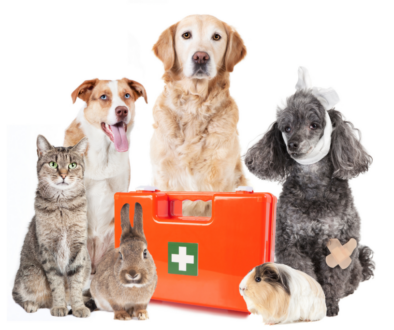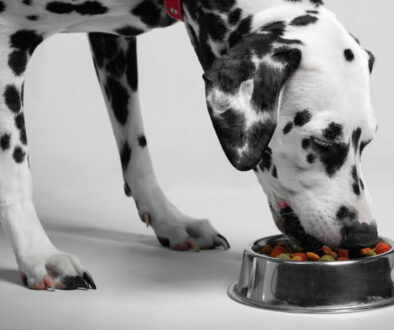Pet Care Tips for Dogs for Beginners
Although bringing a furry companion into your house gives endless delight, it also entails a number of obligations that call for your attention, care, and understanding. Navigating the world of pet care if you’re new to the world of canine companionship may be both exhilarating and overwhelming. Keep reading to get pet care tips for dogs for beginners. This thorough guide is designed to provide new dog owners with crucial knowledge and pointers.
We’ll guide you through the basics of pet care to make sure your four-legged family member enjoys a happy, healthy, and satisfying life, from feeding and grooming to exercise and training. These pet care tips for dogs will provide you with the knowledge necessary to establish a safe environment for your dog, whether you’re loving the pitter-patter of puppy feet for the first time or looking for a refresher on dog care fundamentals.

Pet Care Tips for Dogs You Must Not Ignore
Nutritious Diet
A well-balanced diet is the cornerstone of your dog’s health and happiness. Collaborate with your veterinarian to tailor a diet that suits your dog’s individual needs based on age, breed, and activity level. High-quality commercial dog food or a well-prepared homemade diet can provide the necessary nutrients.
Ensure the right portion sizes to maintain a healthy weight, as obesity can lead to various health issues. Fresh, clean water should be accessible at all times to keep your furry friend hydrated and support proper bodily functions.
Regular Exercise
Physical activity is vital for your dog’s overall well-being. Daily exercise prevents weight gain, supports joint health, and combats behavioral problems stemming from boredom.
Regular walks, interactive play sessions, and mentally stimulating activities engage their senses and help build a strong bond between you and your pet. Tailor the intensity and duration of exercise to your dog’s breed and age, making sure they get the right amount of physical and mental stimulation to thrive.
Healthcare Visits
Regular veterinary check-ups are essential to monitor your dog’s health and catch any potential issues early. Annual or semi-annual visits allow your vet to assess your dog’s condition, administer necessary vaccinations, and provide preventive treatments such as flea and tick control.
These visits are also an opportunity to discuss any concerns you may have and receive guidance on topics like nutrition, dental care, and behavioral concerns, ensuring your dog’s well-being is consistently maintained.
Grooming Routine
Regular grooming is more than just aesthetic; it contributes to your dog’s overall health and strengthens the bond between you. Brushing not only keeps their coat looking shiny but also removes dirt, prevents matting, and reduces shedding. Nail trimming prevents painful overgrowth, and routine baths maintain skin health.
Furthermore, grooming sessions also allow you to check for any skin abnormalities, lumps, or irritations that might require medical attention. As you groom your dog, you’re creating positive associations and fostering trust, making the experience enjoyable for both of you.
Training and Socialization
Basic obedience training is an investment that pays off in the long run. Teaching commands like sit, stay, and recall fosters communication and ensures safety. Additionally, socialization with other dogs, pets, and people is vital.
Early exposure to various situations, sounds, and environments shapes a confident and well-mannered dog. Positive interactions during this phase build their social skills and minimize fear or aggression tendencies.
Safe Environment
Your dog’s surroundings should be a haven of safety. Remove potential hazards such as toxic plants, small objects that could be swallowed, and electrical cords. Provide mentally stimulating toys to prevent boredom-related behaviors.
A crate can offer a secure retreat if needed. Supervise your dog, especially during their exploratory phase, to prevent accidents and ingesting harmful substances.
Comfortable Shelter
Every dog deserves a cozy sanctuary. Dedicate a quiet corner with a comfortable bed where your dog can rest undisturbed. This spot becomes their retreat when they need solitude.
Ensure the area is away from drafts and noise. Whether it’s a crate, a bed, or a designated mat, this space provides security and a sense of ownership.
Positive Reinforcement
Positive reinforcement is a powerful training tool. Reward good behavior promptly with praise, treats, or toys. This technique creates a positive association with desired actions and encourages your dog to repeat them. It’s effective in curbing unwanted behaviors too. Avoid punishment, as it can lead to fear and anxiety.
Consistency is key; reward consistently for desired behavior and redirect or ignore undesired behavior. With patience and positive reinforcement, your dog will understand what’s expected and respond positively.
ID Tag and Microchip
Preparing for the unexpected is crucial, and an ID tag and microchip can be lifesavers. Attach an ID tag to your dog’s collar with their name and your updated contact information. This simple step increases the chances of a fast reunion if they ever get lost. These pet care tips are unavoidable.
Additionally, consider microchipping your dog. This tiny device, inserted under the skin, holds essential details that a vet or shelter can access via a scanner. It’s a permanent safeguard against separation and ensures that even if the collar is lost, identification remains intact for a swift and stress-free reunion.
Love and Attention
Your dog’s emotional well-being is as important as their physical health. Spending quality time together strengthens your bond and nurtures their happiness. Regular play, cuddles, and training sessions create positive associations with you and reinforce your sense of security.
Dogs thrive on companionship and attention, so involve them in your daily routine. Whether it’s a leisurely stroll, a game of fetch, or simply lounging together, your attentive presence provides them with the love and companionship they need to lead a fulfilling and joyful life.
Conclusion
In the journey of dog ownership, embracing the role of a responsible and compassionate caregiver is paramount. This guide has illuminated the path by giving pet care tips for dogs for beginners, offering a holistic view of pet care essentials that forge strong bonds and ensure the well-being of your furry companion.
From crafting a nutritious diet to fostering a loving environment and providing proper training, these insights empower you to navigate the challenges of canine care with confidence. Remember, every wagging tail and joyful bark is a testament to the care and attention invested.
As you embark on this rewarding journey, armed with knowledge and fueled by affection, you’re not just a dog owner – you’re a dedicated partner in your pet’s journey of health and happiness.
Also Read:
Pet Care Tips for Rabbits for Beginners
Pet Care Tips for Cats for Beginners



